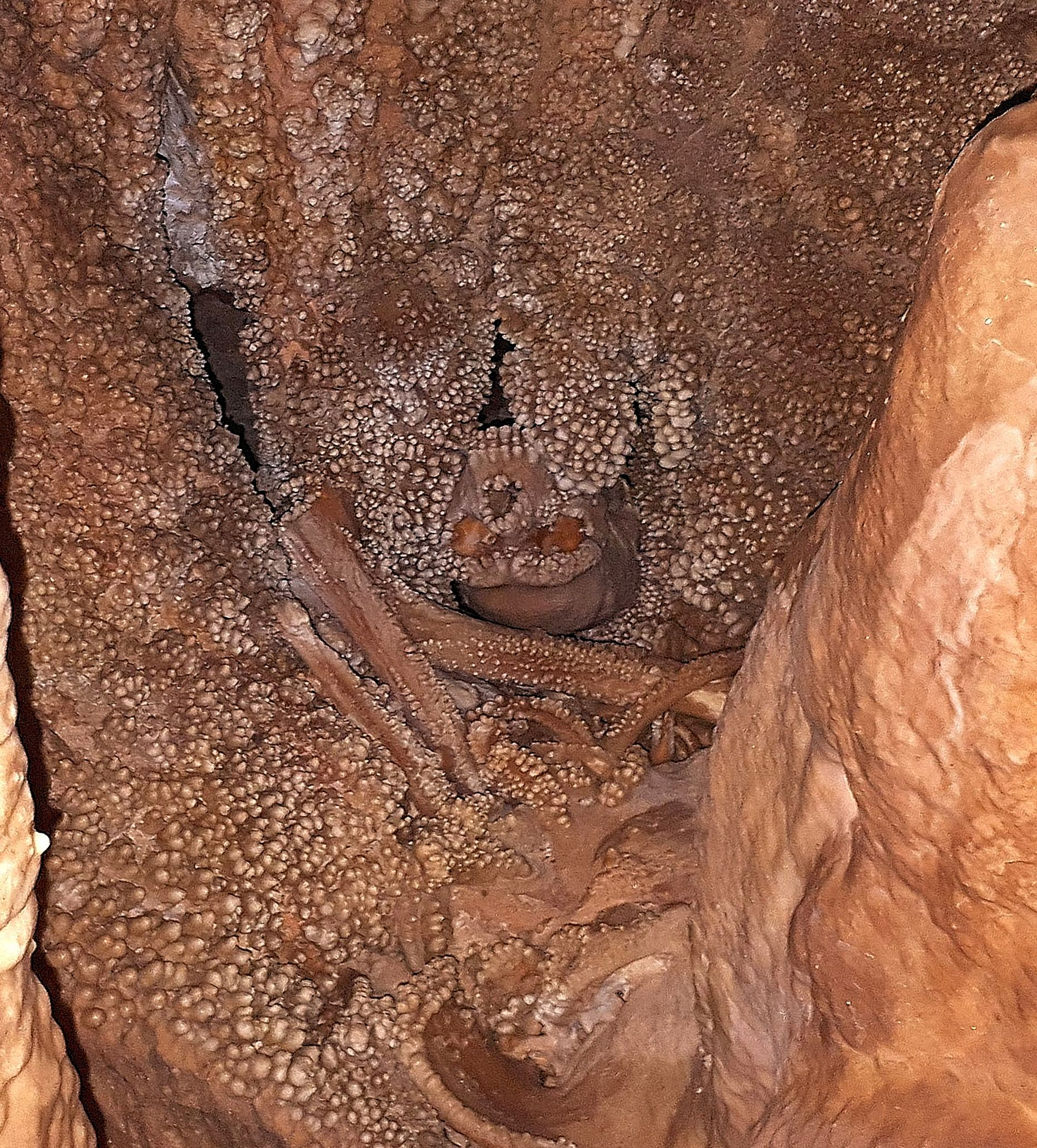In 1993, a strange sight was found in a cave in Altamura, southern Italy. Inside the Lamalunga cave – created by a sinkhole – was a virtually complete fossilized skeleton of a human, embedded within a rock.
As well as that, the remains were covered with “cave popcorn”; tiny spot-like marks all over the bones. The “popcorn” appearance could be explained easily. When calcite is dissolved in rainwater it can then accumulate on the surface of the cave floor, or whatever happens to be there instead, in this case a skull.
“Cave popcorn usually occurs in wet areas of the cave where water can flow on the surface,” Lee-Gray Boze, physical scientist from the United States Geological Survey, told How Stuff Works. “Many of the longest cave systems tend to be drier, with some notable exceptions, and these dry areas tend to be less decorated. However, in the wet areas, cave popcorn is a common feature, usually indicating a wet environment and air flow.”
“Other common environments can include dripping water, in which the drips may cause popcorn to form in a radius around the drip sites.”

The body as it was found.
The popcorn, as well as looking delicious, helped one team discover the likely cause of the man’s death.
“Faunal remains found in some of the galleries are often isolated bony elements accumulated in depressed areas of the cave, suggesting that they were transported and dispersed by water,” one team investigating the body found. “This was not the case with the human skeleton, given that it is largely represented and concentrated in a small area. Thus, we may hypothesize that, after death and decomposition of the body, the skeleton collapsed where it has been found.”
The team believe that the man had likely fallen into a sinkhole, and gotten stuck. There he likely starved or died of dehydration, before being covered in popcorn and discovered by scientists over a hundred thousand years later. Altamura man still had a few surprises left.
The skeleton was left where it was, as disturbing it would likely have caused irreparable damage to it, and scientists were left to study the body by observations on-site and photographs from others. When a sample of the skeleton – a fragment of its shoulder blade – was taken for analysis, they were able to determine it wasn’t a Homo sapiens, just as others had theorized, but a Neanderthal who had met his maker between 128,000 and 187,000 years ago.
Further analysis of the man’s teeth by another team in 2020 found wear on the teeth, suggesting that he was an adult – though not old – at the time of his unfortunate death. They also found that one of his teeth was likely lost a few weeks before his death “since the other teeth of the right maxillary arcade had enough time to rearrange their position along the tooth row”. The tooth, they add, “must have been lost a few weeks before death, since alveolar resorption is still in an incipient stage”.
All in all, it wasn’t a great few weeks.
Source Link: "Altamura Man" Found Embedded In Cave Wall Suffered An Unfortunate Death